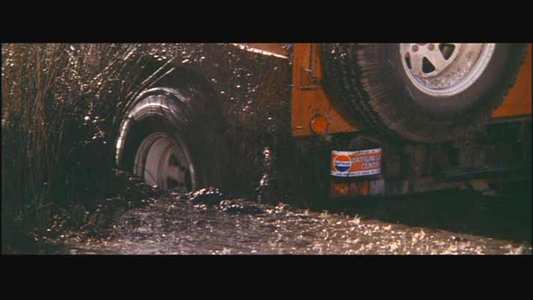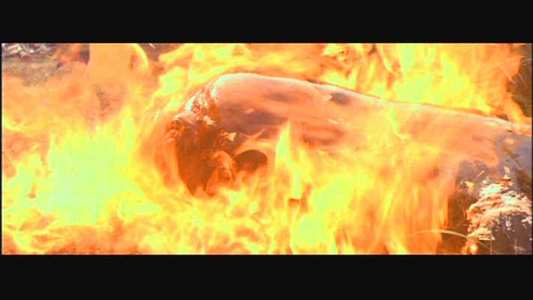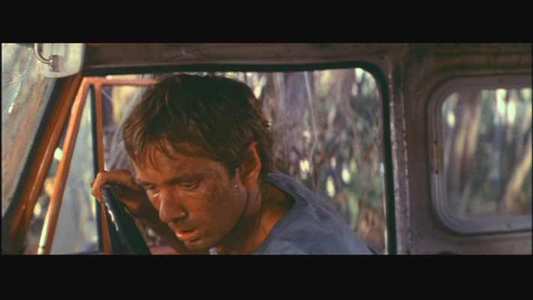Review of Long Weekend, The
Introduction
In common with Roeg`s `Walkabout`, `Long Weekend` is a movie about how little control man has in the great interiors of Australia. But curiously, it`s also a movie of its age (produced on a shoestring in 1977 and first shown in 1979), reflecting the fascination in all things supernatural that was so prominent in the seventies (The Exorcist et al).
Arrogant city dweller Peter (John Hargreaves) and moody Marcia (Briony Behets) go on a `long weekend` to a distant and remote location on the Australian coast. From the outset there is tension between the two, she preferring a `civilised` hotel break, but he insisting on getting back to nature in the outback.
As the story develops we learn that all is not well with their marriage. She has recently undergone an abortion and the psychological effects of this are played out against the backdrop of the great outdoors where she frequently mistakes animal or bird calls with the cries of a baby.
There could also be an ecological sub-plot here too as during the journey we see them frequently throw bottles and litter, and even (unknowingly) start a bush fire with a discarded cigarette. At one point they Peter runs over and kills a wallaby too, setting up the possibility of this being a psychological revenge movie!
Once they get to their remote destination things start to get spookily weird. A fresh frozen chicken has gone bad, a harpoon gun seems to go off of its own accord nearly killing Marcia in the process, and Peter is attacked by both an eagle and a relatively innocent looking possum. Then there`s the mysterious dugong washed up on the beach that, despite being dead (Peter shot it mistaking it for a shark), it seems to be moving every time they`re not looking. Whilst each and every happening could have a perfectly rational explanation, the sheer quantity sets about paranoia, first in Marcia and then with Peter. Perhaps the final straw is following a drive, Peter discovers an abandoned campsite, and eventually the car (with dead occupants) stuck in the shallow sea.
Eventually, the normally rational and pragmatic Peter gets caught up in the same panicked mania that seems to be gripping Marcia and, whether a genuine malevolent force is at power or not, nature seems to take the revenge its due.
It`s difficult to place `Long Weekend` firmly in any genre, despite the trailer doing the best it can to suggest this is a horror movie, as it is more complex than just that. Despite really featuring just the two individuals for the bulk of the movie.
The performances by both Hargreaves (who died of AIDS in 1995) and Behets are very fine indeed and there is a tireless sense of unease to the movie from the outset which worsens as the film progresses. Despite some slightly clumsy dialogue, the film is one that is extremely thought provoking and will stay with you for days.

Video
This is in full Scope format (2.35:1 ratio) and, despite its relatively small cast, certainly benefits from the format with wide natural vistas and seascapes looking very nice indeed. The picture itself is a little washed out and lacking in contrast as well as occasionally suffering from a little graininess. That may well have been how the original print appeared (that look was popular at the time) and nothing to do with the transfer. Other than that, this is a good print with virtually no sign of wear, and a decent transfer with little or no signs of digital artefacting.

Audio
For a mono soundtrack, this one is peculiarly inventive for the period, full of weird background atmos, and even uses off-kilter phasing from time to time to accentuate the unease building in the movie.

Features
None on this edition, other than a mis-leading trailer peddling the movie as a rather hackneyed sounding horror movie. Don`t be fooled - it`s rather better than that.

Conclusion
This genre-defying mix of horror, psychodrama and Australian outback exploration is better than you might think. This may be due in part to the brilliant performances of its two central characters, as well as some impressive atmospheric direction and camera-work, and it`s certainly aided and abetted by a superbly inventive soundtrack.
The unease starts from the outset and intensifies as the movie progresses, moving quickly into a hybrid of Roeg`s `Walkabout` (there`s a similar atmosphere to this) and Hitchcock`s `The Birds`.
Where the movie falters is in its unresolved dual themes (man against nature and the break-up of a relationship) that never quite tie together as neatly as you might hope.
The ambitious anamorphic scope format is impressive in the main though may be partly responsible for the general softness and grain we see here as the cameraman battles in low-light against the limits of his film speed and dangerously temperamental depth of field.
All that aside - recommended!
Your Opinions and Comments
Be the first to post a comment!